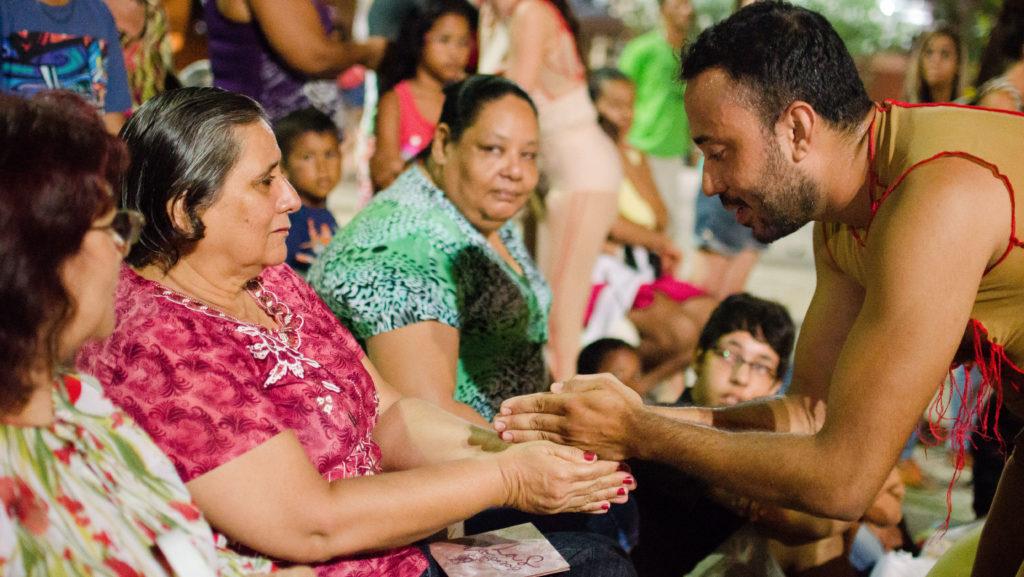With the rise of social justice activism across the nation, Ithaca College’s Department of Theatre Arts is working to keep the dialogue center stage.
Performing Arts for Social Change (PASC), a theatrical group at the college made up of students and Ithaca community members, hosted a workshop Sept. 5 in Studio 3 of Dillingham Center to teach acting techniques and exercises based on the Brazilian writer Augusto Boal’s book, “Theatre of the Oppressed.” Founded and run by Cynthia Henderson, associate professor in the college’s Department of Theatre Arts, PASC incorporates elements beyond traditional theater to emphasize human expression and expand the traditional ideals behind performing arts.
The workshop was open to all students, regardless of theatrical or personal experience. However, Henderson said the workshop was not for people who are simply looking to remedy oppressive experiences.
“It’s not just moving with your bodies and expressing with your voice,” Henderson said. “There’s going to be art as well, like painting and inks, and multiple ways of expressing and working through oppression and perceptions of who you are.”
The book that the workshop is based on is a series of theatrical analyses and critiques that utilize multiple artistic mediums. It describes interactive theatrical techniques developed by Boal to promote social and political change.
“[Boal’s ‘Theatre of the Oppressed’] talks about using theater as a place for people who are oppressed by their gender or sexuality or economic and political circumstances … to share their experience with others and to process their experience using this as an outlet,” said Danica Kelley ’16, who has worked closely with Henderson on past productions. “It sort of blew my mind learning about all the ways you can do theater.”
Brazilian actor and educator Wagner Montenegro, who traveled to Ithaca from his hometown of Recife, Brazil, facilitated the workshop pro bono. Having worked under Boal’s instruction, Montenegro said he mainly focused on self-expression, which is a theme emphasized throughout “Theatre of the Oppressed.”
“It is important for each person to be familiar with their own way of expression through the arts because the arts are the human language,” Montenegro said. “I am not just an actor onstage, and you are not just a consumer. You, too, can be an artist. You have the power to have control of your life, your politics and your community.”
Montenegro said he strives to have his work not only invoke a sense of self-awareness in students but also a sense of liberation as well.
“People are taught to lose their power,” he said. “Since childhood, you are taught to always obey and nod your head yes. The ‘Theatre of the Oppressed’ says no. Ask questions, question [authority].”
Henderson said the success of the workshop will be left up to the individuals who attended.
“It’s up to how much you’re willing to explore within yourself,” she said. “The goal of these types of workshops are to help you figure out what it is that you need to do to work through what you are experiencing.”
Senior Rachael Langton, a theater studies major, has worked closely with Henderson on PASC’s past productions. She said she was inspired by the group’s mission.
“[Cynthia] kept telling me about Performing Arts for Social Change, which is a group that focuses on theater for the oppressed and theater that works to have social change actually happen,” Langton said. “That idea really intrigued me because I love doing theater that has a purpose.”
As for the future, Henderson said she believes her work will continue indefinitely.
“Every time I think I may want to close the door and take a rest, something else happens, and I realize no, there’s no time to rest yet,” she said. “I’ll rest later. This has to be said. This has to be spoken about. These people need a voice.”














